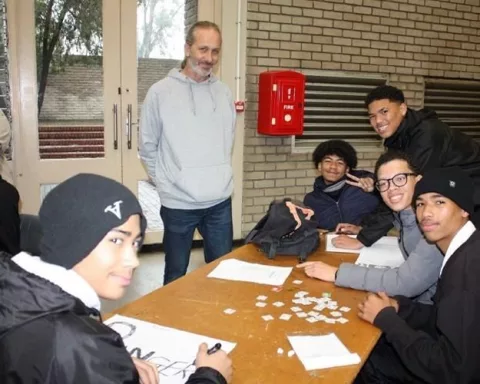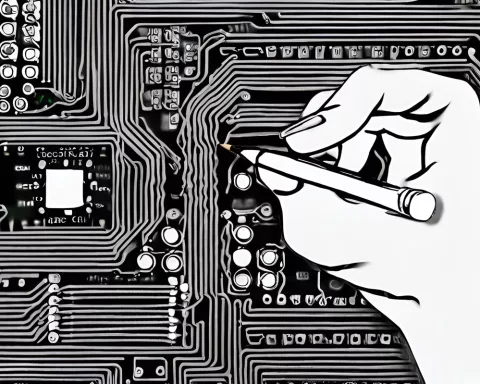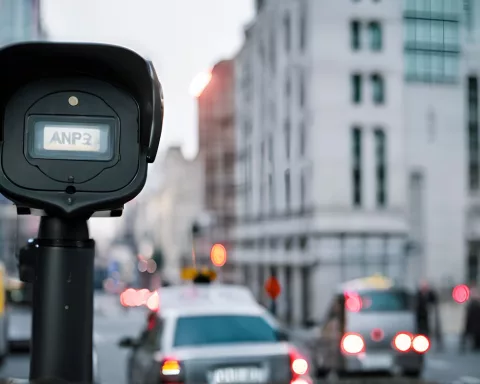The libraries in the City of Cape Town are embracing the digital world and introducing new technologies to combat power disruptions such as load-shedding. They are introducing Uninterrupted Power Supply (UPS) units to ensure Wi-Fi access remains uninterrupted during power outages. Libraries are also broadening their digital presence, incorporating e-tablets loaded with educational apps and e-books to foster critical digital literacy skills. These adaptations showcase the libraries’ adaptability and resilience in navigating towards a future that blends tradition and technology.
City of Cape Town’s libraries are trailblazing a novel course, boldly embracing the digital world while simultaneously ensuring resilience against power disruptions. In an effort to counteract the unpredictability of load-shedding, the libraries are launching an array of strategies, including the introduction of Uninterrupted Power Supply (UPS) units. By the end of the 2023/24 fiscal year, a total of 68 libraries will be equipped with these indispensable power supplies.
As the digital era seeps into every aspect of our lives, libraries have begun to adapt and evolve. These once traditional storehouses of knowledge are not being left behind. The libraries within the City of Cape Town are trailblazing a novel course, boldly embracing the digital world while simultaneously ensuring resilience against power disruptions. This transformation is indicative of their adaptability and tenacity as they navigate towards a future that harmoniously blends tradition and technology.
City Libraries Combat Power Outages with Tech Enhancements
In an effort to counteract the unpredictability of load-shedding, the City of Cape Town’s Library and Information Services is launching an array of strategies. These strategies incorporate both protective measures and technological advancements. A notable element of this initiative is the introduction of Uninterrupted Power Supply (UPS) units across all city libraries. The core aim of these units is to maintain network services even during power outages.
By the end of the 2023/24 fiscal year, a total of 68 libraries will be equipped with these indispensable power supplies. This guarantees that Wi-Fi access remains uninterrupted during power outages. Patricia van der Ross, the City’s Mayoral Committee Member for Community Services and Health, provides further insight into the broader goals framing this initiative. “Our vision extends beyond merely providing an uninterrupted power supply,” she clarifies. “We are driven by the goal to empower learners to continue their research work and to grant patrons access to opportunities.”
Libraries Expedite Circulation, Promote Equitable Access
This progressive mindset is mirrored in the adjustments made to borrowing privileges. The loan period across all formats, which includes books, CDs, and DVDs (with the exception of high-demand study resources), has been cut down to two weeks. This ensures that materials circulate more quickly, enabling more patrons to access needed resources in a timely manner.
Additionally, the duration for DVD loans has been extended from two days to two weeks. This gives users a more flexible timeframe to enjoy their chosen DVDs without the worry of impending fines or the inconvenience of frequent return trips. The number of items patrons can borrow simultaneously has also been revised, fostering equal access to resources at all times.
Digital Outreach and E-literacy Initiatives Gain Momentum
The push towards modernization isn’t only restricted to tangible elements. Libraries are actively broadening their digital presence, with 90 out of 102 facilities currently granting patrons access to their online services. It is projected that by the 2024/25 fiscal year, Wi-Fi access will be available at all 102 facilities.
To further minimize the digital divide, e-tablets have been incorporated into the libraries’ resources. Currently, 32 libraries have a set of five tablets each, loaded with educational apps and e-books. These tools serve not just as reading aids but also as catalysts, fostering the development of critical digital literacy skills necessary to traverse today’s digital landscape.
City Libraries Gear Up for a Digital Future
In summary, the City of Cape Town’s libraries are redefining their role in this increasingly digital world. As Councillor Van der Ross aptly articulates, “We’re enabling patrons to not only stay connected at all times, but also aiding our younger patrons to become proficient in digital and technology spaces.”
By leveraging the power of technology, the City of Cape Town’s libraries are well-poised to uphold their mission as hubs of knowledge and learning. They are committed to serving the community while simultaneously ushering in the future. Their journey offers an insightful case study of how libraries can adapt, evolve and flourish in the digital age.
1. What are the libraries in the City of Cape Town doing to combat power disruptions?
The libraries in the City of Cape Town are introducing Uninterrupted Power Supply (UPS) units to ensure Wi-Fi access remains uninterrupted during power outages.
2. How many libraries will be equipped with UPS units by the end of the 2023/24 fiscal year?
A total of 68 libraries will be equipped with Uninterrupted Power Supply (UPS) units by the end of the 2023/24 fiscal year.
3. How are libraries promoting equitable access to resources?
The loan period across all formats has been cut down to two weeks to ensure that materials circulate more quickly, enabling more patrons to access needed resources in a timely manner. Additionally, the duration for DVD loans has been extended from two days to two weeks and the number of items patrons can borrow simultaneously has been revised, fostering equal access to resources at all times.
4. How are libraries broadening their digital presence?
Libraries are actively broadening their digital presence, with 90 out of 102 facilities currently granting patrons access to their online services. It is projected that by the 2024/25 fiscal year, Wi-Fi access will be available at all 102 facilities.
5. What are e-tablets being used for in libraries?
E-tablets have been incorporated into the libraries’ resources, serving as reading aids and catalysts for fostering the development of critical digital literacy skills necessary to traverse today’s digital landscape.
6. What is the broader goal of the libraries’ technology initiatives?
The broader goal of the libraries’ technology initiatives is to empower learners to continue their research work and to grant patrons access to opportunities, helping them stay connected at all times and aiding younger patrons to become proficient in digital and technology spaces.












